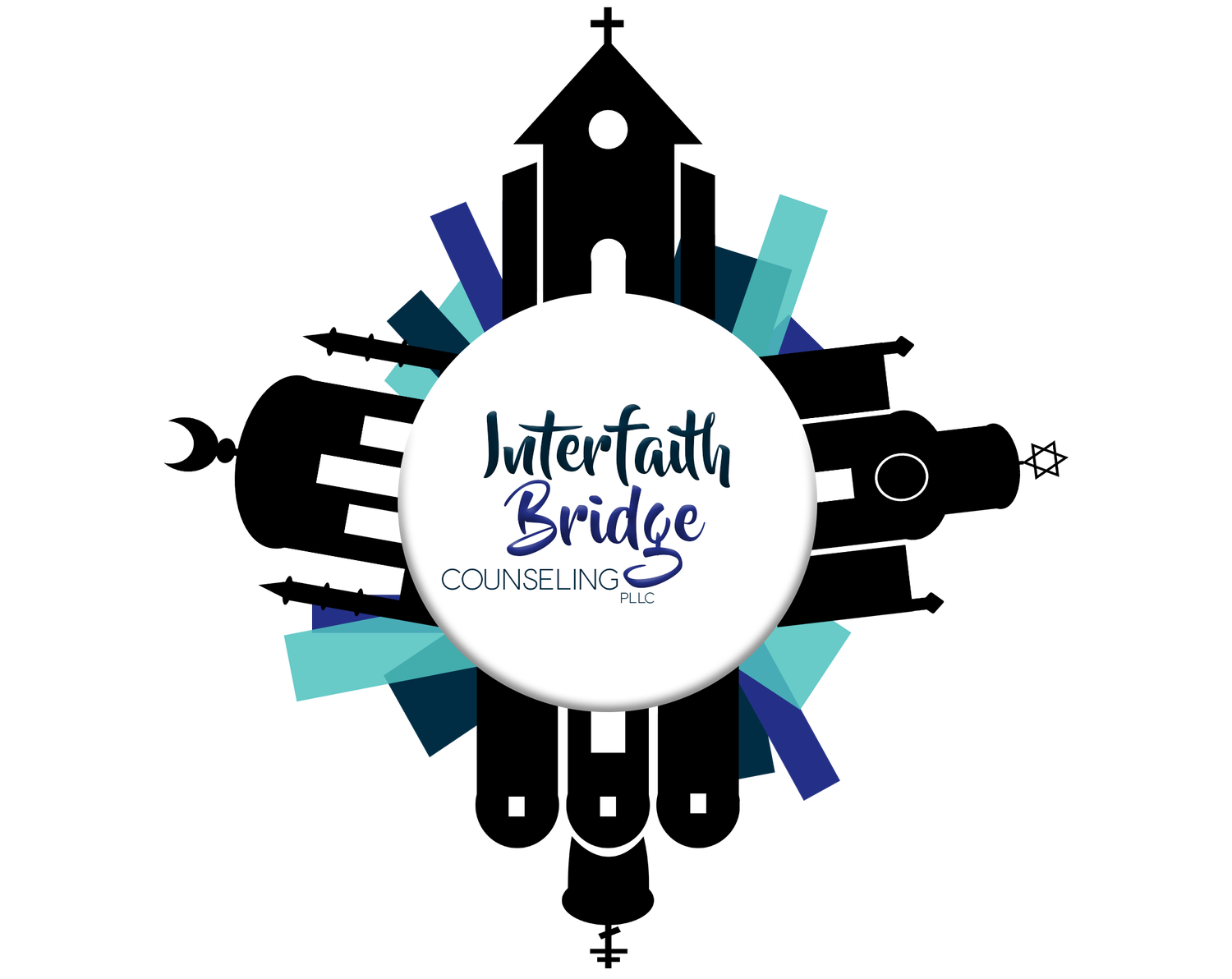
Disability And Chronic Illness Therapy for Teens & Young Adults in Denver
Life, particularly for young adults and teens, can be exceedingly complicated. You're still developing physically and mentally, making difficult choices about your future, navigating relationships, and discovering what it means to truly be you. Throw in a disability or chronic illness like ADHD, POTS, or neurodivergence (or any other condition) and life gets just a little bit more than difficult.
Whether you've just been diagnosed, have lived with your disability or chronic illness, or are seeking a diagnosis, the struggle is real. Not only do you have to deal with all of the above, but you also have to live in an ableist world, one where your needs, wants, and dreams are often not accounted for. Frustrations like finding appropriate and accessible medical care, navigating education, careers, and social opportunities are common (and typical).
Whatever your needs or diagnoses are, Interfaith Bridge Counseling specializes in supporting and advocating for teens and young adults in Colorado who live with a disability and/or chronic illness.
What does Disability and Chronic Illness Therapy for Teens and Young Adults look like?
Maybe you’re expecting to find information about how therapy can help you to master the pain in your mind to stop the pain in your body or that a few different coping strategies will help you to become a typical teen. But the the hard reality is…that isn’t really realistic or possible.
Many therapy modalities like CBT, DBT, ABA, and EMDR can cause catastrophic harm since most therapists are not trained to work with disability and chronic illnesses. Most therapists have an able-bodied mentality along with able-bodied training, and do not have the unique and vital perspective or experience that those with a disability or chronic illness have and need.
Interfaith Bridge Counseling is a disabled-owned and competent mental health organization, meaning we bring a unique blend of lived experience and competency training to our therapeutic work. We adhere to the ten principles of disability justice and believe that you deserve a place and voice in our community.
We focus on helping individuals find and advocate for their place in an ableist world, and be valued and respected for who they are. Together we’ll help you achieve autonomy, find community in your peers, and recognize that you deserve to have your needs met (and that you’re not asking for anything extra).
why is disability and chronic illness therapy important?
Maybe you've missed tests, dances, parties, and employment opportunities. Maybe you've struggled with physical pain and emotional pain. Maybe frustration, loneliness, anxiety, and sadness are familiar feelings (even if it may be hard to identify them.) Everyone who has lived with a disability or chronic illness has faced limitations, setbacks, and challenges, if not downright social stigma and discrimination. And because of this (and so much more,) you've had to struggle.
As much as we want to say that therapy is an easy fix, and that it will make everything sparkly and magical, we can't. But we can say that therapy plays a crucial role in helping you navigate an ableist world and empowering you to live a life you deserve and feel comfortable in.
According to multiple studies, therapy for chronic illnesses or disability is critical for teens and young adults, not only to provide a safer and supportive environment to express themselves and learn coping skills, but also to increase autonomy where possible, improve future quality of life and health habits, and build advocacy for future needs. Therapy also provides a safer environment for young people to address those challenges related to social interactions, emotional regulation, and managing their stressors. We help young people build coping strategies for dealing with changes and sensory sensitivities, and help folx gain a greater sense of self-awareness and understanding of their condition, which helps foster self-acceptance and confidence.

Benefits of Beginning Teen & Young Adult Disability & Chronic Illness Therapy
-
![[Image] Teal scribble above words "Enhanced Quality of Life."](https://images.squarespace-cdn.com/content/v1/63d95f727c30a3483f4424e4/30eab524-1e80-4758-88db-7f99c0541165/Untitled+%2811+%C3%97+11+in%29.png)
Enhanced Quality of Life
-
![[Image] Teal scribble above words "Increased Autonomy."](https://images.squarespace-cdn.com/content/v1/63d95f727c30a3483f4424e4/30eab524-1e80-4758-88db-7f99c0541165/Untitled+%2811+%C3%97+11+in%29.png)
Increased Autonomy
-
![[Image] Teal scribble above words "Improved Self-Confidence](https://images.squarespace-cdn.com/content/v1/63d95f727c30a3483f4424e4/30eab524-1e80-4758-88db-7f99c0541165/Untitled+%2811+%C3%97+11+in%29.png)
Improved Self-Confidence
-
![[Image] Teal scribble above words "Strengthened Advocacy Skills."](https://images.squarespace-cdn.com/content/v1/63d95f727c30a3483f4424e4/30eab524-1e80-4758-88db-7f99c0541165/Untitled+%2811+%C3%97+11+in%29.png)
Strengthened Advocacy Skills
Symptoms of Teens & Young Adults Challenged by their Disability or Chronic Illness
We live in a world that invalidates our experiences, reinforces negative stereotypes, and disregards the impact a disability or chronic illness has on a young person. Many of us are understandably beaten down by this society. Symptoms of this mental and physical fatigue from living in an abelist world may be hard to differentiate between the characteristics of a disability, or the symptoms of a chronic illness. As with all individuals and issues, symptoms can be different. Here are a few of the more common symptoms we see in teens and young adults who are struggling.
Isolation and Loneliness: You feel trapped, sometimes even in your own body. If it’s not your symptoms, thoughts, or feelings keeping you from getting out, it’s this feeling of not being accepted by your peers or your loved ones. The relationships you do have seem to fade away and it seems like too much of an effort to try and maintain them. This feeling of “otherness” is heavy and it feels easier and safer to keep to yourself.
Feelings of Helplessness or Unworthiness: Thoughts like I’m just a burden and I don’t deserve help are normal for you. You feel hopeless about your disability or chronic illness and don’t see any relief in sight. Maybe you feel like giving up, or just not trying.
Fatigue: You feel like your persistent tiredness goes beyond physical exhaustion. And honestly, you’re probably right. It’s most likely the stress of managing your chronic condition or disability alongside everything else. Those feelings of frustration, anxiety, and depression exacerbate your fatigue, creating a vicious cycle.
There are many different disabilities and chronic illnesses that teens and young adults face today, both visible and invisible. While some disabilities and chronic conditions affect us more physically, others affect us more cognitively. We recognize that neurodivergence is a vast spectrum wheel, and that similarly, many physical conditions also have unique nuances. It's essential to acknowledge that each individual has specific needs, strengths, and aspirations, which stresses the importance of personalized support and understanding.

Common Types of Disabilities & Chronic Illnesses We Work With
-
![[Image] Teal scribble above words "Ehlers Danlos Syndrome (EDS)."](https://images.squarespace-cdn.com/content/v1/63d95f727c30a3483f4424e4/30eab524-1e80-4758-88db-7f99c0541165/Untitled+%2811+%C3%97+11+in%29.png)
Ehlers Danlos Syndrome (EDS)
Young people with Ehler Danlos Syndrome (EDS) struggle with challenges like severe chronic pain, fatigue, brain fog, subluxations, and much more. Therapy can help teens and young adults with EDS learn more about their diagnosis, learn coping skills to help manage everyday life, discover more about who they are, both as someone with EDS and as an individual, and learn how to advocate for themselves in a variety of medical and non-medical environments. We also offer group therapy options for those who have EDS or are seeking a diagnosis.
-
![[Image] Teal scribble above words "Postural Orthostatic Tachycardia Syndrome (POTS)."](https://images.squarespace-cdn.com/content/v1/63d95f727c30a3483f4424e4/30eab524-1e80-4758-88db-7f99c0541165/Untitled+%2811+%C3%97+11+in%29.png)
Postural Orthostatic Tachycardia Syndrome (POTS)
Those who are diagnosed with Postural Orthostatic Tachycardia Syndrome (POTS) often face a life filled with headaches, brain fog, dizziness, fainting, and fatigue (among other things.) Similar to EDS, POTS comes with limitations: it may be difficult to consistently participate in school, work, extracurriculars, or social events. Therapy can provide you with a supportive space to address the emotions that arise from these limitations, and help improve your emotional resilience to challenges in the future.
-
![[Image] Teal scribble above words "Attention-Deficit/Hyperactivity Disorder (ADHD)."](https://images.squarespace-cdn.com/content/v1/63d95f727c30a3483f4424e4/30eab524-1e80-4758-88db-7f99c0541165/Untitled+%2811+%C3%97+11+in%29.png)
Attention-Deficit/Hyperactivity Disorder (ADHD)
According to the CDC, nearly 12% of teens are diagnosed with ADHD. Those who have ADHD often have difficulty with things like focusing, controlling impulses, organizing, and/or multitasking. It’s no wonder this leads to increased levels of stress, frustration, and burnout. Therapy can help address the core challenges of ADHD, like improving focus, organization, and time management skills. It can also help individuals find educational and occupational opportunities that better pertain to their specific needs and strengths.
-
![[Image] Teal scribble above words "Obsessive Compulsive Disorder (OCD)."](https://images.squarespace-cdn.com/content/v1/63d95f727c30a3483f4424e4/30eab524-1e80-4758-88db-7f99c0541165/Untitled+%2811+%C3%97+11+in%29.png)
Obsessive Compulsive Disorder (OCD)
We often hear the term OCD used superfluously in our day-to-day language. For those who truly struggle with Obsessive Compulsive Disorder, life can be a terror. Teens and young adults who have OCD may struggle with perfectionism, ritualistic behaviors, compulsions, and avoidances that can severely limit their lives. Participating in therapy can help individuals understand their thoughts and compulsive behaviors, and greatly reduce the distress caused by OCD.
-
![[Image] Teal scribble above words "Autism (ASD)."](https://images.squarespace-cdn.com/content/v1/63d95f727c30a3483f4424e4/30eab524-1e80-4758-88db-7f99c0541165/Untitled+%2811+%C3%97+11+in%29.png)
Autism (ASD)
Autism Spectrum Disorder (ASD) is characterized by challenges in social interaction, communication, and repetitive behaviors. We recognize Autism as a diagnosis given to many neurodivergent folx who possess unique neurological characteristics that deserve recognition, integration, and accommodation. We offer therapy for both support levels of needs known as 1 and 2, and aim to help both teenagers and young adults navigate the often messy yet essential world of social and communication skills.
Find a Colorado Disability & Chronic Illness Therapist
ACCEPTING NEW CLIENTS
ACCEPTING NEW CLIENTS
Shannon Browning
Professional Counseling Intern
She/Her
ACCEPTING NEW CLIENTS
ACCEPTING NEW CLIENTS
Jillene Chio
Professional Counseling Intern
She/Her
ACCEPTING NEW CLIENTS
ACCEPTING NEW CLIENTS
Rani Ellison
Professional Counseling Intern
They/Them/She/Her
Lena McCain MA, LPC
Founder & Clinical Director
She/Her
Pricing: We operate on a pay-what-you-can scale between $60 - $140 per session for individual counseling services at Interfaith Bridge Counseling, PLLC.
Outside our age range but still want to work with us? Don’t worry! Just reach out and let us know.

![[Image] Young adult non-binary person with arm prothetic and blue curly hair. Denver Tween Therapy for Disability and Chronic Illness.](https://images.squarespace-cdn.com/content/v1/63d95f727c30a3483f4424e4/b9118ded-1e32-4850-ba9a-630ee09494db/Disability-Young-Adult-Therapy-Denver-CO-Interfaith-Bridge-Counseling.jpg)
![[Image] Young adult Caucasian woman with blue hair and anti-nausea glasses. Denver Young Adult Therapy for Disability and Chronic Illness.](https://images.squarespace-cdn.com/content/v1/63d95f727c30a3483f4424e4/20a4ed1e-9838-40ac-9183-35a12f4e19c5/Disability-Teen-Therapy-POTS-Denver-Colorado-Interfaith-Bridge-Counseling.jpg)
![[Image] Teen female smiling with white service dog on lap. Denver Teen Therapy for Disability and Chronic Illness.](https://images.squarespace-cdn.com/content/v1/63d95f727c30a3483f4424e4/d4ffbf69-cbbe-4258-ac80-a8d6e47e68b6/OCD-Teen-Therapy-Denver-Colorado-Interfaith-Bridge-Counseling.jpg)
![[Image] Young adult person with yellow walker in orange hoodie and glasses. Denver Young Adult Therapy for Disability and Chronic Illness.](https://images.squarespace-cdn.com/content/v1/63d95f727c30a3483f4424e4/5bb16401-2c63-4efe-9d90-47228c47c93e/Chronic-Illness-Teen-Therapy-EDS-Denver-Colorado-Interfaith-Bridge-Counseling.jpg)
![[Image] BIPOC tween in wheelchair with headphones around neck and wavy brown hair. Denver Teen Therapy for Disability and Chronic Illness.](https://images.squarespace-cdn.com/content/v1/63d95f727c30a3483f4424e4/53d97508-5921-4fd7-8548-81a813cb5cc9/ADHD-Teen-Therapy-Denver-Colorado-Interfaith-Bridge-Counseling.jpg)
![[Image] Young teen female in COVID mask and red shirt. Denver Teen Therapy for Disability and Chronic Illness.](https://images.squarespace-cdn.com/content/v1/63d95f727c30a3483f4424e4/ea855bb0-f9fa-4cea-9778-d10e9aeb7a79/Chronic-Illness-Young-Adult-Therapy-Denver-Colorado-Interfaith-Bridge-Counseling.jpg)
![[Image] Scribble picture of Caucasian woman smiling in front of a graffiti painted wall. Denver Teen Therapist.](https://images.squarespace-cdn.com/content/v1/63d95f727c30a3483f4424e4/15e03054-56b1-463f-b16a-dc13d6c418a2/Shannon-Browning-Young-Adult-Therapy-Teen-Therapy-Denver-Colorado-Interfaith-Bridge-Counseling.png)
![[Image] Asian young adult poking her head out in front of a graffiti art wall smiling, offering therapy for tweens, teens, and young adults in Denver, Colorado.](https://images.squarespace-cdn.com/content/v1/63d95f727c30a3483f4424e4/d60e5f6d-b809-42f0-9419-7fa9dae82937/Jillene-Chio-Young-Adult-Therapy-Teen-Therapy-Denver-CO-Interfaith-Bridge-Counseling.png)
![[Image] Scribble picture of asian non-binary person smiling in front of a graffiti painted wall. Denver Teen Therapist.](https://images.squarespace-cdn.com/content/v1/63d95f727c30a3483f4424e4/8ab62aef-a2dd-4514-abed-a2a77fff4a8f/Rani-Ellison-Teen-Therapy-Young-Adult-Therapy-Denver-Colorado-Interfaith-Bridge-Counseling.png)
![[Image] Scribble picture of Caucasian woman with hands on her head in front of a graffiti painted wall. Denver Teen Therapist](https://images.squarespace-cdn.com/content/v1/63d95f727c30a3483f4424e4/6b1ef401-b6f4-4af2-92f6-daeaf3cca61b/Lena-McCain-LPC-Clinical-Director-Colorado-Interfaith-Bridge-Counseling.jpg)